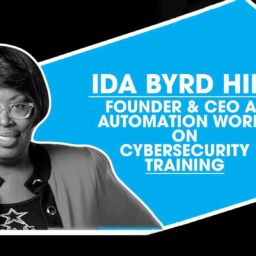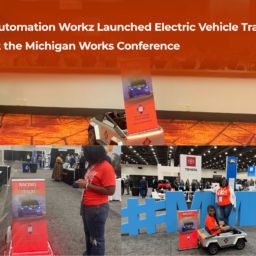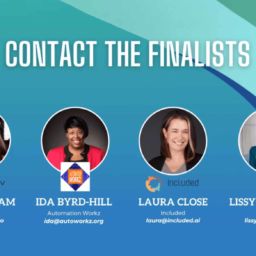Reposted from Lucas Mearian
The tech industry has been hit particularly hard by the pandemic and the Great Resignation, leaving organizations facing a dearth of qualified job candidates for more than 1 million openings.
For all US jobs, the number of openings was at a high of 11.5 million at the end of March, according to the US Bureau of Labor Statistics (BLS). Meanwhile, in each of the past six months, more than 4 million people have quit their jobs, according to the agency.
For technology, the talent shortage is even worse. While the national unemployment rate hovers around 3.6%, for the tech industry it’s 2%, according to CompTIA, a nonprofit association for the IT industry and workforce. That’s prompted employers throughout the US to step up their search for workers — and to revisit the qualifications (such as a four-year college degree) they require.
Among middle-skilled occupations, the openings that require college degrees are, for the most part, similar to those openings for which no degree is required, according to a recent study by Harvard Business School’s (HBS) Project on Managing the Future of Work and the Burning Glass Institute.
“Jobs do not require four-year college degrees. Employers do,” the study said.
That realization is prompting companies to consider a shift in hiring practices that recognizes the nontraditional paths many have taken to develop technology skills — paths that don’t require a degree.
Businesses, government nix degree requirement
In June 2020 and January 2021, the White House announced limits on the use of educational requirements when hiring IT professionals in favor of a skills-based approach.
Last month, employment site Indeed published the results of a survey of 502 employers across the US on how the pandemic has shaped current recruiting and future plans. The results: the majority of firms surveyed are moving toward a more flexible model of candidate recruiting.
“Gone are the days of unnecessary credentials and aspirational job requirements. Instead, we find employers thinking creatively to consider different types of applicants than in the past — a shift that can benefit everyone,” Indeed said in the report.
Specifically, the Indeed survey found:
- 59% of employers are considering eliminating college degree requirements for hiring.
- 30% of employers believe removing degree requirements would help them hire more diverse talent.
- 87% of senior executives say they are not prepared to address skills gaps.
Only about one-third of the US adult population has a college degree, which makes it harder for businesses to hire talent, according to research firm IDC. That’s exacerbated by the fact many companies began demanding four-year degrees after the Great Recession of 2008-09, when job candidates were plentiful, IDC said in a 2018 report.
Those standards were expected to be lifted as the economy improved. But even as the labor market has tightened, the inflation in college degree requirements has remained.
Unless a company sets up an internal development program on certifications as career milestones, it’s difficult to identify which ones help make a candidate “otherwise qualified,” according to Cushing Anderson, an IDC vice president in HR research.
There’s little risk in bypassing degree requirements in favor of skills-based candidates, but corporate hiring teams are rewarded for being “risk averse,” or presenting only the best qualified candidates on paper to the hiring manager, according to Anderson.
“The problem is most job postings today still contain a long list of requirements, which can turn away potential job seekers, especially those from nontraditional backgrounds,” Jamie Kohn, a research director in Gartner’s Human Resource practice said via email. “Looking ahead, the most successful companies aren’t just reducing requirements — they’re building relationships with alternate training programs to signal their interest to candidates early on.”
Some employers are already resetting requirements in a variety of roles, dropping “four-year degree” from many middle-skill and even some higher-skill postings, according to a study by Harvard Business School (HBS) and Burning Glass Institute earlier this year. And while the COVID-19 pandemic accelerated the process, that reset began before the crisis — and is likely to continue.
A qualifications reset could boost diversity
A reset on which actual skills are needed to fill knowledge-worker jobs could have major implications for how employers find talent in the years ahead, and open opportunities for the two-thirds of Americans without a college education, according to the HBR/Burning Glass study.
“Based on these trends, we project that an additional 1.4 million jobs could open to workers without college degrees over the next five years,” the report said.
On the rise now: the importance of certification programs, a trend that’s apparent in CompTIA’s recent survey of HR leaders. Net support for eliminating or relaxing degree requirements in hiring increased from 76% to 85% this year; 76% say certifications are now a factor in IT hiring; and 47% expect certifications to become even more important as a candidate evaluation tool.
“I have two degrees, and I can tell you everything I learned in both degrees — even before I graduated — was obsolete. Tech leaders have created their own talent shortage by refusing to hire skilled, diverse professionals who possess certification training,” said Ida Byrd-Hill, CEO and founder of Automation Workz.

Automation Workz
Ida Byrd-Hill, CEO and founder of Automation Workz
Automation Workz offers reskilling or upskilling programs in tech and cybersecurity to corporations and individuals. The company also offers executive coaching and a diversity culture audit to determine a company’s inclusivity and how to increase it.
Byrd-Hill, who is Black, founded Automation Workz in 2019 to offer post-secondary tech certifications to give African-Americans a clearer path into the tech industry. Born and raised in Flint, MI., Byrd-Hill graduated from the University of Michigan with a degree in economics and later got an MBA. She spent most of her career working in human resources and financial services, but also did coding in Cobol. One issue that bothered her: she didn’t see other people who looked like her in technology.
“Really, what pushed it over the edge is I was designing a video game…, and I wanted to transition it into a mobile game and I could not find a Black video game developer in Detroit to save my life,” she said. “I thought, I need to fix that.”














